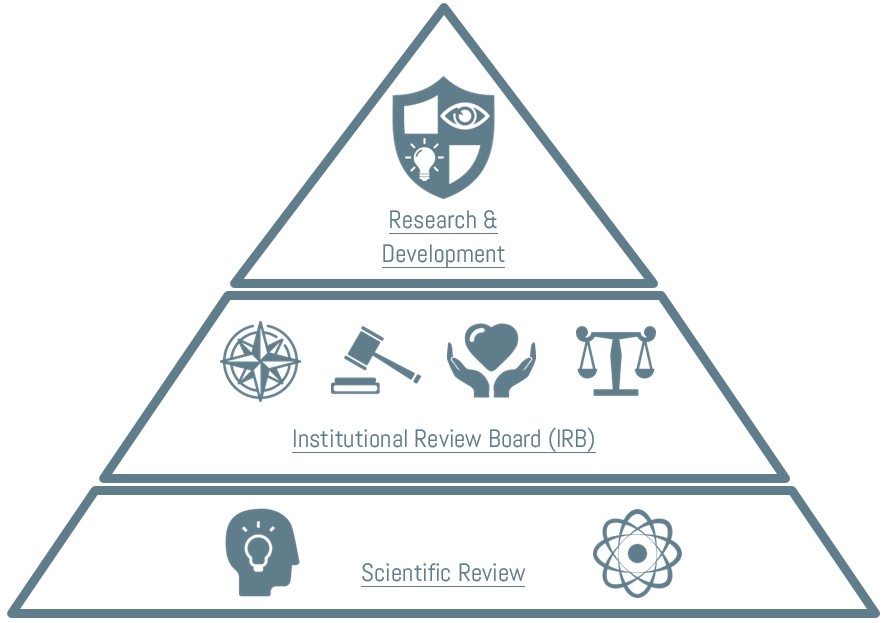INTEGRITY
All research at the Southern Arizona VA Health Care System (SAVAHCS) is reviewed by multiple committees that are tasked with ensuring that ethical principles are upheld, that procedures are as safe as possible, and that research and medical information are kept secured to the highest standards. Review committees are made up of multidisciplinary clinicians and non-scientists from across the SAVAHCS campus as well as members who represent the Tucson community.

SCIENTIFIC REVIEW
The initial stages of research at SAVAHCS begin with scientifically sound protocols to conduct the research. These protocols serve as the scientific basis for the research to be performed as well as a clear plan of what procedures will be performed, what data will be collected, and how the data will be analyzed. BREFSA offers researchers assistance on an as-needed basis with writing these protocols or ensuring that their research plans meet rigorous standards.
Scientific review is completed on all projects by qualified members of the SAVAHCS Research & Development Committee. This initial review is key in ensuring that a project has adequate validity and merit before it undergoes additional consideration and review.

Human Subjects Protections:
The Institutional Review Board (IRB)
Research that involves interaction with human research participants, or use of identifiable tissue samples or data about living Veterans, must be reviewed by the Institutional Review Board (IRB). The IRB is a group of healthcare professionals and community members who are charged with conducting rigorous reviews of research to ensure that the rights, safety, and welfare of human research participants are protected. Reviews are conducted not only when research proposals are initially submitted, but are also reviewed when modifications are made, if any unexpected problems occur, and on an annual basis. The IRB operates independently of the facility and the VA to ensure that the IRB has the necessary authority to protect research participants. Therefore, if the IRB decides that a research project is not approved, no other authority can reverse the IRB’s decision.
The IRB operates off of key ethical principles that were summarized through the Belmont Report – a 1979 report that was produced as a result of The National Commission for the Protection of Human Subjects of Biomedical and Behavioral Research. The three major ethical principles described by the Belmont Report are: Justice, Beneficence, and Respect for Persons. These principles serve as the guidelines for several bodies of federal regulations, which the IRB is charged to uphold and enforce. Additionally, the Department of Veterans Affairs Office of Research and Development (ORD) established and enforces many additional regulations that are upheld by the IRB to provide special protections to Veteran subjects.

Respect for Persons
The Belmont Report:
“Individuals should be treated as autonomous agents.”
“To respect autonomy is to give weight to autonomous persons’ considered opinions and choices while refraining from obstructing their actions…”
- Informed Consent. To uphold this cornerstone ethical principle, the IRB ensures that research participants are provided adequate information and time prior making a decision to participate in research. The IRB reviews the plans that researchers have for ensuring that understandable information is relayed, and reviews consenting forms to ensure that they are not coercive or misleading. The IRB follows detailed regulatory guidance to verify that the many factors that should be considered prior to participating are appropriately and effectively communicated.
- Privacy & Confidentiality. VA makes Veterans’ privacy a priority. The IRB works closely with the facility Privacy Officer to ensure that research participants provide written permission to collect and use personal data for research purposes, and that participants are informed of any disclosures to be made outside of VA. Additionally, the IRB collaborates with the SAVAHCS Information Security Officer to verify that all research data is protected by strict security measures.

Beneficence
The Belmont Report:
” Persons are treated in an ethical manner not only by respecting their decisions and protecting them from harm, but also by making efforts to secure their well-being.”
“Two general rules have been formulated as complementary expressions of beneficent actions in this sense: (1) do not harm and (2) maximize possible benefits and minimize possible harms.”
- Risk/Benefit Analysis. A main responsibility of the IRB is to continuously assess the risks and benefits of research to ensure that in all cases:
- Risks have been minimized, and
- Any risks to participants are reasonable in relation to the anticipated benefits, if any, to subjects, and the importance of the knowledge that may be reasonably be expected to result.
- Scientific Validity. While there is a separate Scientific Review Committee that reviews all research proposals, the IRB also takes some responsibility to ensure:
- The investigators are qualified to conduct the research.
- There is sound methodology.
- There is supporting scientific evidence to justify the research.

Justice
The Belmont Report:
“An injustice occurs when some benefit to which a person is entitled is denied without good reason or when some burden is imposed unduly.”
“There are several widely accepted formulations of just ways to distribute the burdens and benefits… (1) to each person an equal share, (2) to each person according to individual need, (3) to each person according to individual effort, (4) to each person according to societal contribution, and (5) to each person according to merit.”
- Equitable Selection of Subjects. The IRB takes into account the purposes of the research and the setting in which the research will be conducted to ensure that available populations who may reasonably participate in the research neither bear an undue level of burden, nor receive all of the benefits of the research.
- Eliminate Exploitation. Subject selection is scrutinized to ensure that no research subjects are being systematically selected simply because of their easy availability, their compromised position, or manipulability, rather than for reasons directly related to the problem being studied. Veterans are not allowed to be approached for research simply because they are an available population. SAVAHCS IRB ensures that participation in SAVAHCS research has a relationship to the mission of the VA and/or the Veteran population.

Oversight and Direction:
The Research & Development Committee
The Research & Development Committee (R&DC) is the highest level review board at SAVAHCS, responsible for oversight and maintaining high standards in research. The R&DC provides the overall oversight and planning for all research efforts taking place at SAVAHCS and makes key decisions directing the research infrastructure, the research vision, and the overarching operations of the research program. The R&DC is composed of health care professionals from across the facility and includes ex-officio membership from key facility leadership including the Chief of Staff, Privacy Officer, and Information Security Officer.

